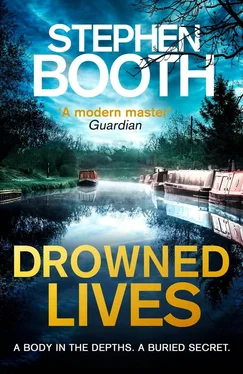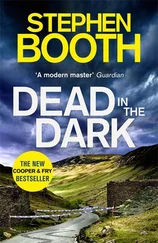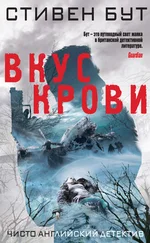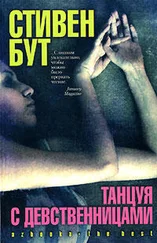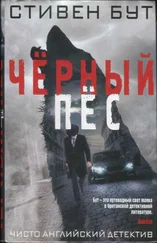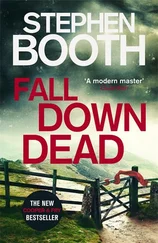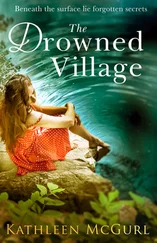The meaning behind Samuel’s letter sent an extra stab of guilt through my heart. While I’d been feeling misguidedly complacent about being alone and without a family, there had been this relative, who’d felt equally alone and unwanted, but with the added burden of old age. He’d lived alone, visited only occasionally by a daughter who was now gone to some distant part of the world. And he’d become obsessed with the past.
It was clearly an unhealthy obsession, for it had surely turned his mind. This was obvious to me from the tone of his words. Genetic memory? Proust and his madeleine? This wasn’t just going off at a tangent, or the vague wanderings that old people were prone to. Samuel Longden had definitely been a bit cracked. He’d needed help, but not the sort of help I could ever have given him.
But what of me now? I’d spent the last few months adjusting to the idea that I no longer had any family. Now here was this old man who’d walked into my life and turned it upside down, and it was difficult to know how to react. I felt astonished and angry at myself that I’d been so brainwashed by my parents and believed there were no other living Buckleys. In retrospect, their insistence sounded false, a case of protesting too much.
But I’d been perfectly happy to accept the situation. Even relieved, if I was honest. I’d never enjoyed the duty visits to my mother’s side of the family, or the obligatory get-togethers at Christmas, and I’d been glad there were none to be suffered on the Buckley side. It had seemed like an escape.
If only, just once, I’d heard my Great-Uncle Samuel’s name mentioned, I might have started asking the right questions a bit earlier, when my parents were still alive to answer for themselves.
That night, and during the next day, I searched my memory for references to the missing side of my family. But it seemed a complete blank. As a child, I certainly couldn’t recall having questioned the lack of Buckleys — being surfeited, I suppose, with the Claytons and Bridgemans, and all those suburban houses in Perry Barr and Erdington. I recalled plump cousins and middle-aged aunts smelling of face powder, all of whom I was obliged to kiss on family occasions like weddings and funerals.
But there had never been a get-together of the Buckleys, no visits to unfamiliar houses in suburbs of Lichfield or villages like Whittington, no beery uncles to shake hands with in return for a fifty pence piece. There had been no names and addresses of Buckleys on our Christmas card list. Or Longdens for that matter.
And yet here was evidence that they’d existed. At least two of them, Samuel and his daughter Caroline. No, make that three — Samuel’s wife, my Great-Aunt Alison, had been alive until ten years ago. Did my parents not go to Samuel’s wedding? Had they ever spoken to Alison? No matter what disagreement had alienated the brothers, Alison could surely have done nothing wrong. And had they really not attended her funeral, after the articulated lorry had severed her relationship to the Buckley family? But I knew the answer, and the thought made me unreasonably angry.
I’d always thought of myself as a man who looked only to the future, and never really wondered about my past. There are more important things than family, more urgent issues than relatives with whom you have nothing in common.
Now, I had a lot to think about. When I’d left the house that morning, it had been as somebody with no ties, a solitary offshoot of the wilting Buckley family tree. But it seemed I had to come to terms with a creeping hedge of relatives that had been lurking around me unseen, who were now getting closer.
Most of all, it was incredible that my Great-Uncle Samuel had exploded into my life and left it again in the course of a single week, like a wayward comet streaking across my universe. What, really, had been his intentions?
Once back in the house, I made my way up to the landing and lowered the folding ladder that my father had installed to give access to the attic. There was a big space up there, which could have been converted into an extra bedroom easily if I’d ever had any brothers or sisters. But there’d never been any use for it, except as storage for all the useless lumber that accumulates in a house over the years.
Since the death of my parents, I’d made no attempt to clear out the rubbish. In fact, I hadn’t even bothered removing their clothes from the wardrobe in their bedroom. Some items could have gone to the charity shops, I suppose, but it hardly seemed worth the effort. Who wanted a few old suits and cardigans, or dresses impregnated with the familiar, sweet odour of my mother’s perfume?
When I’d last been in their room, my mother’s make-up and perfume bottles had still been standing on the dressing table in front of the mirror. My father hadn’t moved them, and neither had I. Now they stood next to his hairbrush and his favourite cufflinks.
In the attic, though, was an old suitcase, which I could recall being brought out occasionally when I was a child. It contained two bundles of photographs. Some were of myself as a boy in the late 1960s and early 70s, all scuffed jeans and sulky stares as the Flower Power era passed me by. Some showed my parents on their wedding day, and later on holiday in Scotland or Majorca.
But there were other photographs too, which had never meant much to me — black and white prints of unfamiliar faces, figures posing stiffly outside the church where my parents had married, or staring with frozen expressions at the camera with their baggy suits and Brylcreemed hair. Most of the people had been nameless, and an explanation for their presence had never been offered. But that suitcase seemed to be the only place I could start looking for answers.
As soon as I opened the lid, a strange essence was released into the air — not quite a smell or a taste, but almost a movement. I knew I was becoming too fanciful. It was Samuel’s talk of madeleines that had done it. Of course, an old suitcase full of mementos was bound to contain its own smell of age and history. It was a cloud of almost imperceptible dust particles that had risen from the contents to float in the light creeping through the dormer window. But recognising the simple reality didn’t stop me feeling as though I’d just opened Pandora’s box to let out a swarm of tiny demons.
‘Hello! Hello-o-o!’
I jerked at the sound, scattering a handful of photographs in the dust as I returned to an awareness of my surroundings. I became conscious of the pain in my calves where I was developing cramp from squatting in front of the suitcase. I must already have been crouching there for several minutes, lost in a world that had been dead for many years.
‘Hello!’
I knew straightaway that it was Rachel. No one else had quite that quality of instinctive heartiness to their voice. And who else would have the cheek to walk into my house uninvited, as if we were intimate friends?
I edged towards the trap door, wincing at the discomfort in my legs, and looked down onto the landing. Rachel’s face was turned up towards me, round and white, an expression of concern and puzzlement in her eyes. She had a furry black bundle clutched in her arms.
‘Chris? Are you all right? What are you doing up there?’
‘Just looking for something.’
‘I couldn’t get an answer at the back door, so I came in to see if everything was okay. Boswell was crying at the door.’
‘Yes, he does that. He just wants a bit of attention, that’s all.’
Before I could think of anything else to say, another twinge of pain went through my leg as the circulation began to return. Rachel noticed my expression immediately.
‘Are you sure you’re all right?’
Читать дальше
